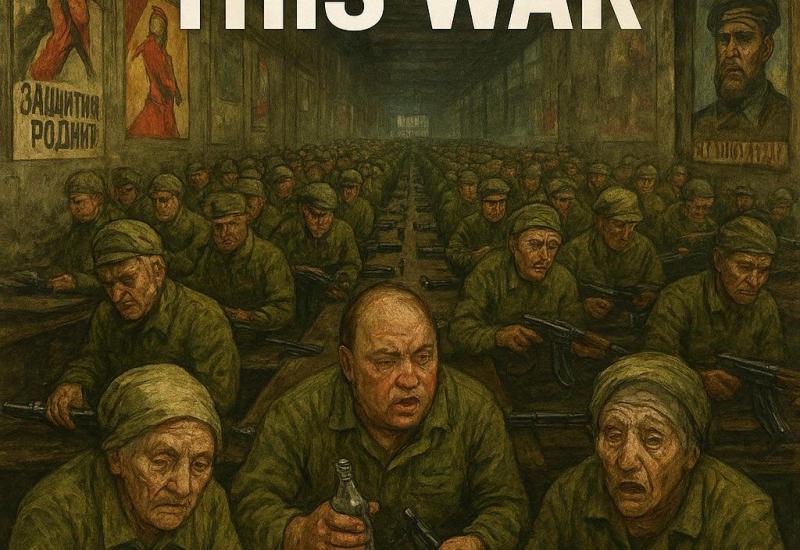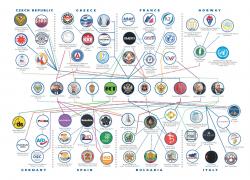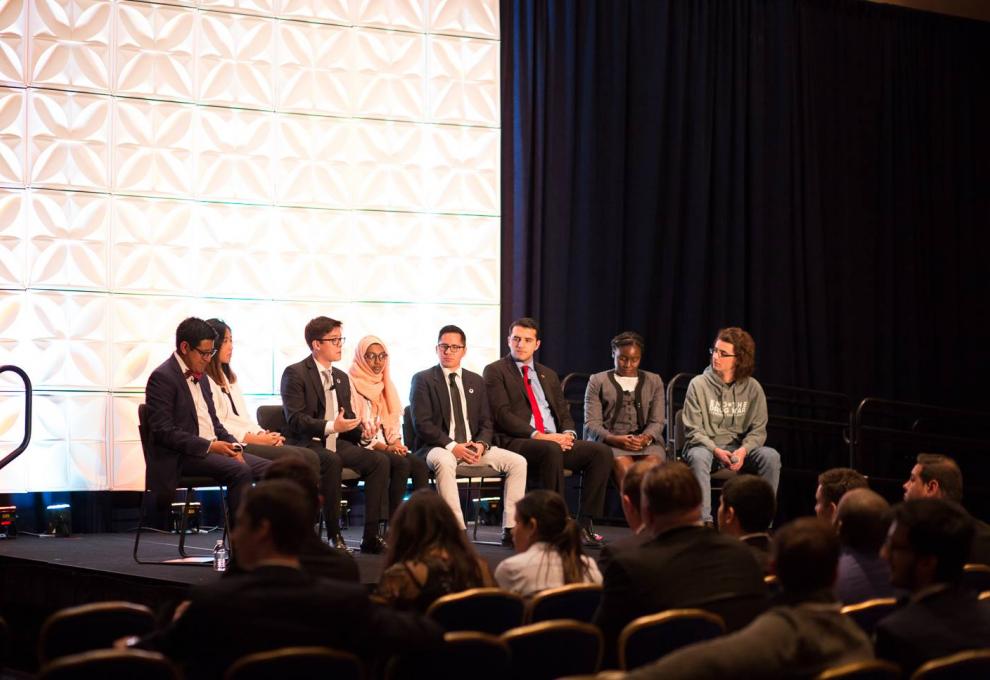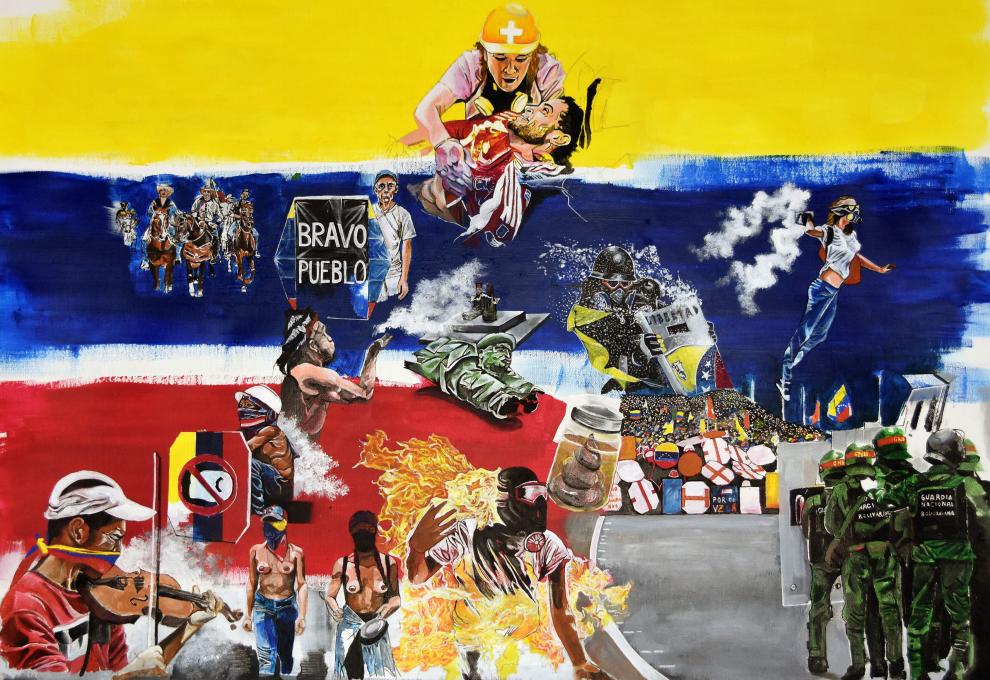Trump’s War on Democratic Norms
“Democracies do not die on specific dates or when specific laws are passed in congress. Democracies die in a more subtle manner. They die gradually; not when certain politicians are elected, but when certain ideas permeate the public discourse of an entire country.”
When I became a columnist at FTN, the fundamental mission of our partnership consisted of internationally communicating the things that are going on in my country, Venezuela. Thereby, we have published articles on issues that have severely deteriorated the rights and freedoms of the Venezuelan people. We publish topics most media outlets are not willing to cover, topics such as my country’s communicational blackout, extreme levels of income inequality, and more recently, Maduro’s sham parliamentary election among others.
Yet, today, my column will not be about Venezuela nor its democratic struggles. And why is this the case? Because it would be irresponsible to write about the struggle for democracy of my country at a moment in history when the most important democracy in the world is under attack. Today, it is not the time to talk about Venezuela nor any other international issue. It is time to talk about America, and the curious case of a president who is working diligently to undermine – for his political advantage – the most sacrosanct democratic institution of any country: its electoral process, the right every citizen has to decide the future of the nation.
The Assault of the Nation’s Capitol
While I am sure most FTN readers know what happened a couple of days ago, it seems pertinent to at least summarize the events that took place in Washington, D.C. On Wednesday, a violent mob loyal to President Trump stormed into the United States Capitol, forcing lawmakers into hiding, Washington into a curfew, and the entire nation into a state of disbelief.
The rioters stormed the Capitol in an attempt to overturn America’s presidential election, more specifically, to prevent Joe Biden from replacing Donald Trump in the White House. The rioters were motivated by Trump’s false allegations against the integrity of the election process, allegations that were even echoed by some Republican lawmakers in Congress, such as Senator Ted Cruz from Texas and Representative Paul Gosar from Arizona.
Hours later, when the mob was defeated, Vice President Mike Pence, reopening the Senate, directly addressed the demonstrators: “You did not win.” Similarly, Republican Senate Majority Leader Mitch McConnell said the “failed insurrection” underscored lawmakers’ duty to confirm the vote. Democratic House Speaker Nancy Pelosi said Congress would show the world “what America is made of” by finishing the count.
How Democracies Die
People tend to think that democracies die the day a certain law is passed, or a certain election is held. In the case of Venezuela, for instance, people tend to associate the death of our democracy to the election of Hugo Chavez in 1998, or the day his majority rewrote our constitution in 2000 or even the days that Nicolas Maduro did not accept the electoral victories of the opposition in 2013 and 2015.
This could not be further from the truth. Democracies do not die on specific dates or when specific laws are passed in congress. Democracies die in a more subtle manner. They die gradually; not when certain politicians are elected, but when certain ideas permeate the public discourse of the country; ideas aimed at undermining the legitimacy of a country’s democratic institutions, such as its electoral process and judicial system. Usually, these ideas take their time to develop, to become mainstream, to become widely shared and accepted as legitimate. But when they do become mainstream, these ideas become worryingly dangerous.
This is exactly what is happening in America. Both from the far-right and the far-left. On the right side of the spectrum, the supporters of Donald Trump have delegitimized perhaps the two most important political institutions of any democracy: the press and the electoral process. And from the left, its supporters claim that America is not only “systematically racist” but that the entire system is based on oppression and privilege.
Together, while the two sides claim that they could not be more different, the sad reality is that they could not be more alike. Both sides are not seeking to improve the American system, but to overthrow it; and as such, the growth of any of these two extremes has the capacity to kill America’s democracy.
Yet, there is indeed a major difference between the two sides: one of them is supported by not just the leader of its party, but by the president of the United States. This is why my column today is not about the mind-blowing political claims of AOC or the socialist takes of Bernie Sanders. Because while these are also dangerous for America’s democracy, these can be contained not only by the public but by their own political party. Today, they are not the main threat to America’s democracy, unlike Trump’s growing coalition.
America After Trump
Trump’s war on democratic norms will have immediate effects on America’s democracy. While the political institutions of the United States did not succumb to the populist actions of the president, their legitimacy is indeed in question by a growing number of Americans. To illustrate the point, in early November, 70 percent of Republicans said that they didn’t believe the 2020 election was free and fair. A couple of months later, a recent poll found that 75 percent of those who voted for Trump said that he should not concede, and 88 percent of them believed that there was enough electoral fraud to change the outcome.
In this sense, what the United States will experience in the next years is not an institutional crisis, as these remain strong despite a president who attacked them. What the United States will experience is a time of institutional mistrust, a time where half of the country does not believe in the legitimacy of its electoral process, free press, and the Biden administration in itself. For this reason, the decay of America’s democracy is nowhere near being inevitable. It can be stopped if the country’s leadership works on restoring the legitimacy of the system.
Thereby, now it is the time for a new American consensus, a consensus between republicans, democrats, and de-facto powers such as the media, academia, and the business elite. Together, the leadership of the United States has to commit to restoring the legitimacy of the American system. This means that the right has to stop all allegations against the illegitimacy of the electoral process and the Biden administration. This also means that the left has to stop saying that the American institutions are intrinsically racists, or that the electoral college is undemocratic, or that they need to pack the supreme court.
In essence, the leadership of the country as a whole has to do is agreeing in defending the integrity of the American system, both in the economic and political realm. This way, American democracy will not die. In fact, it will grow stronger than ever, just like it has done in the past time and time again.
By Jorge Jraissati
Jorge Jraissati is the president of the Venezuelan Alliance. Graduated at the Wilkes Honors College, Jorge is an economist, political leader, and a fellow at the Abigail Adams Institute. Jorge has been invited as a guest lecturer to over 20 universities, such as Harvard, NYU, and Cambridge.




















